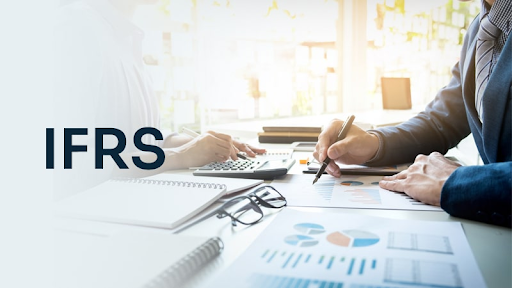In a global economy increasingly driven by environmental, social, and governance (ESG) values, the IFRS S1 standard emerges as a much-needed framework for sustainability-related financial disclosures. Developed by the International Sustainability Standards Board (ISSB), IFRS S1 is designed to ensure companies provide investors with consistent, comparable, and decision-useful sustainability information. But meeting these requirements is no easy task, especially without the right technology in place. That’s where IFRS S1 software tools come in.
These tools not only simplify data collection, analysis, and reporting but also ensure companies stay compliant with the evolving global standards for sustainability disclosure. If you’re preparing for IFRS S1 compliance, it’s time to explore how modern platforms can help streamline your efforts.
How IFRS S1 Software Tools Support Compliance
IFRS S1 compliance involves several moving parts—from identifying material sustainability issues to disclosing accurate, verifiable, and timely data. Manually handling these processes leads to inefficiencies, errors, and missed opportunities. With the right software, businesses can automate and optimize each stage of their sustainability reporting journey.
Here’s how these tools help:
1. Data Integration and Automation
IFRS S1 software platforms can pull ESG data from various sources across your organization—finance, HR, operations, procurement, and more. Automation reduces the burden of manual entry while ensuring consistency and accuracy.
2. Materiality Assessment
The IFRS S1 standard requires companies to disclose information on sustainability-related risks and opportunities that are material to their operations. Many tools offer built-in materiality assessment modules, helping businesses prioritize the right topics and ensure meaningful reporting.
3. Real-Time Monitoring and Dashboards
Advanced platforms allow you to monitor ESG performance in real time. With interactive dashboards and KPIs aligned with IFRS S1, organizations gain a clear view of where they stand—and where they need to improve.
4. Custom Reporting Templates
Rather than starting from scratch, many tools offer pre-built templates and frameworks tailored to IFRS S1 requirements. These templates save time and ensure you cover all the required disclosure areas.
5. Audit-Ready Documentation
Software tools help maintain a clear audit trail of ESG data, calculations, and decisions. This is critical for assuring investors, regulators, and stakeholders that the information provided is both reliable and verifiable.
Key Considerations When Choosing IFRS S1 Software
Not all ESG software platforms are created equal. When selecting a tool to support your IFRS S1 compliance efforts, consider the following:
- Scalability – Can the tool grow with your organization’s reporting needs?
- Interoperability – Does it integrate easily with your existing systems?
- User Experience – Is the interface intuitive and easy to use for both technical and non-technical staff?
- Compliance Support – Does it include updates and templates specific to IFRS S1?
- Audit Trail – Can it Ensure Data Traceability and Verification?
The Road Ahead: Getting Ready for IFRS S1
As regulators and investors demand greater accountability in sustainability, the ability to align your reporting with IFRS S1 will be a competitive advantage. Companies that invest in the right software solutions today will be better prepared to meet tomorrow’s expectations—and gain the trust of stakeholders.
Technology won’t just help you comply—it will empower you to lead with purpose and integrity in a rapidly evolving business environment.
Conclusion
It is an important step forward for global sustainability reporting that IFRS S1 has been introduced. It calls on businesses to disclose meaningful, material ESG information with the same rigor as financial data. For many organizations, this shift will require a transformation in how they collect, analyze, and communicate sustainability information. That’s why IFRS S1 software tools are essential. These platforms offer everything from data integration and automated workflows to materiality assessment and real-time dashboards, making compliance not only possible, but practical.

